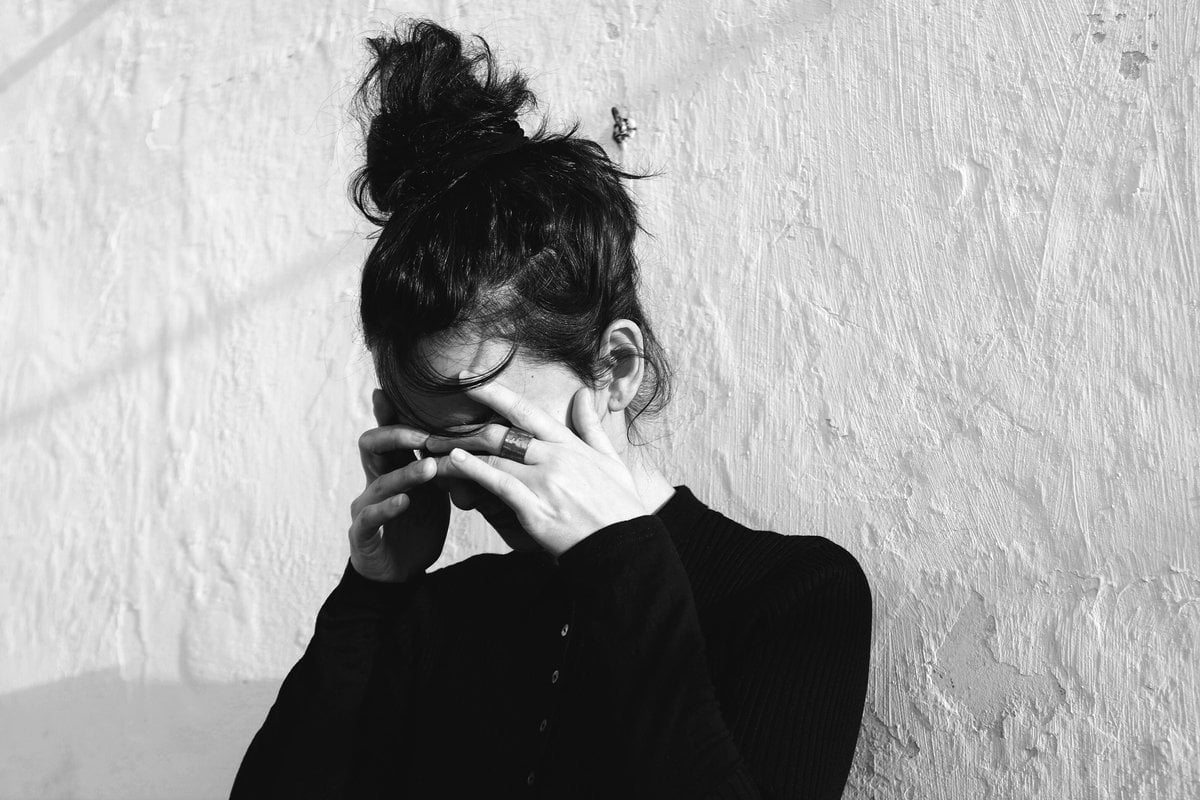
This story includes descriptions of drug use and may be triggering to some readers.
I'd been married for six years when I found drugs in my house.
While my infant twins were napping, I'd decided to hang a tiny canvas painting that celebrated coffee on the wall above my kitchen cabinets.
While up there, I glanced along the dirty, dusty line of the top of my kitchen cabinets, and there, in the back right corner, I saw an empty prescription bottle. I reached over and picked it up. It wasn’t dusty. It obviously hadn’t been there very long. The label had been peeled off mostly, and inside was a Ziploc baggie containing only pot crumbs.
Watch: Mamamia Confessions: Relationship deal-breakers. Post continues below.
Pot’s not that big of a deal to most people. It was currently legal for medicinal purposes in bordering states. CBD retailers had just begun popping up, and it was clearly just a matter of time before our state would begin selling pot too.
But I wasn’t "most" people. At the time of this discovery, I had been clean from drugs and alcohol for over nine years. The only other person that lived with me — my husband at the time, whom I’d met in a 12-step fellowship — also should have had nine years clean.





























































































